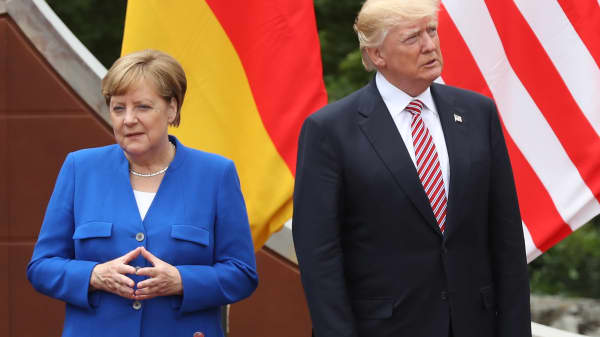President Donald Trump says trade wars are "easy to win," but history suggests otherwise.
Trade-related disputes with Japan and Germany helped precipitate the Crash of '87, while the 1930s Smoot-Hawley tariffs triggered "beggar-thy-neighbor" trade polices and turned a great recession into The Great Depression.
The latter is the most frequently cited example of how protectionist trade legislation or executive actions can lead to trade wars, harming the domestic and global economies.
And while it's still too early to say if the Trump will follow through with proposed tariffs on foreign steel and aluminum, moving forward in that regard could lead to retaliatory measures by many countries, including some of our closest allies like Canada, Germany, along with the European Union more broadly, and South Korea.
David Frum, in an article in The Atlantic, outlines some additional, and relatively recent, risks about how punitive tariffs have hurt specific industries, individual workers and the overall economy.






